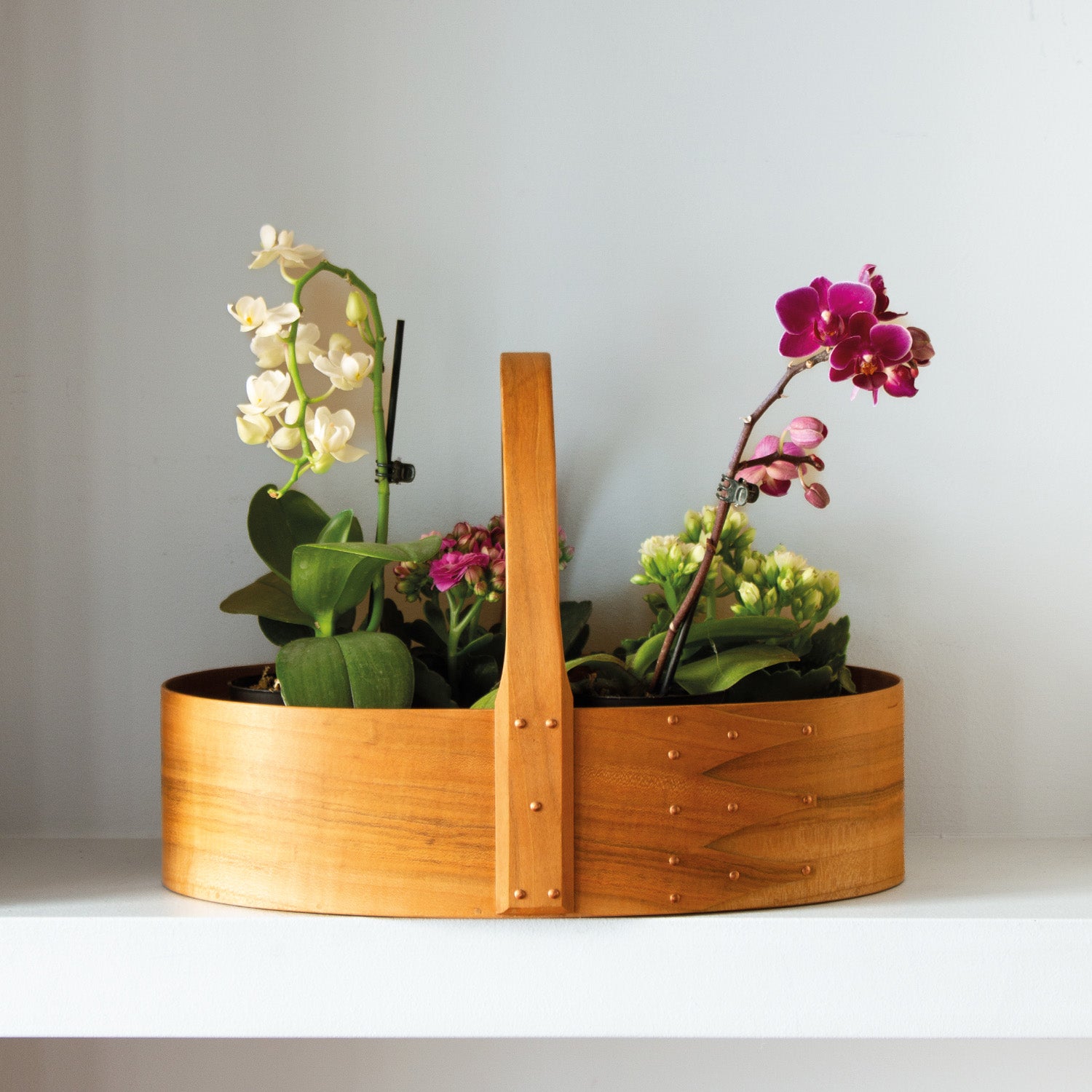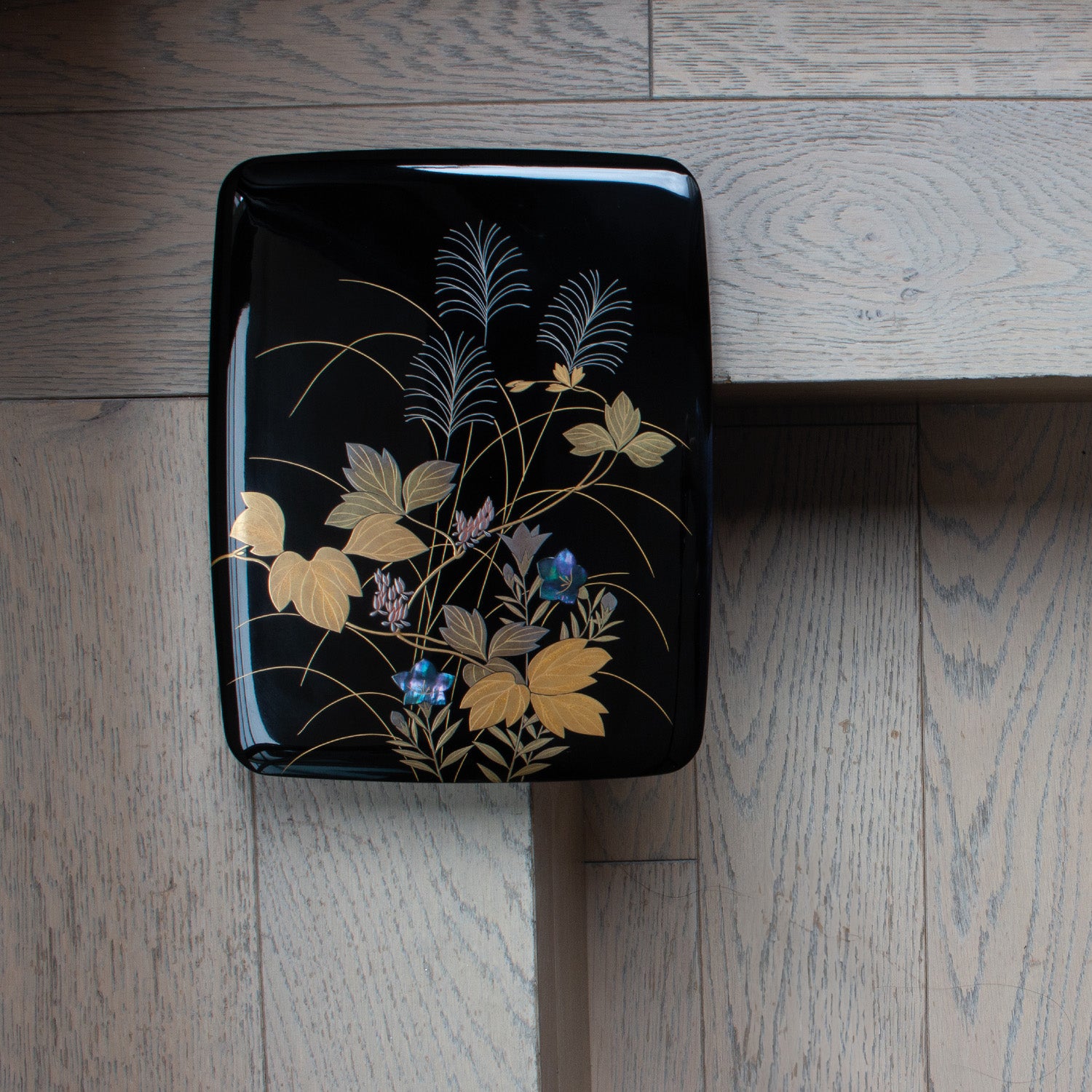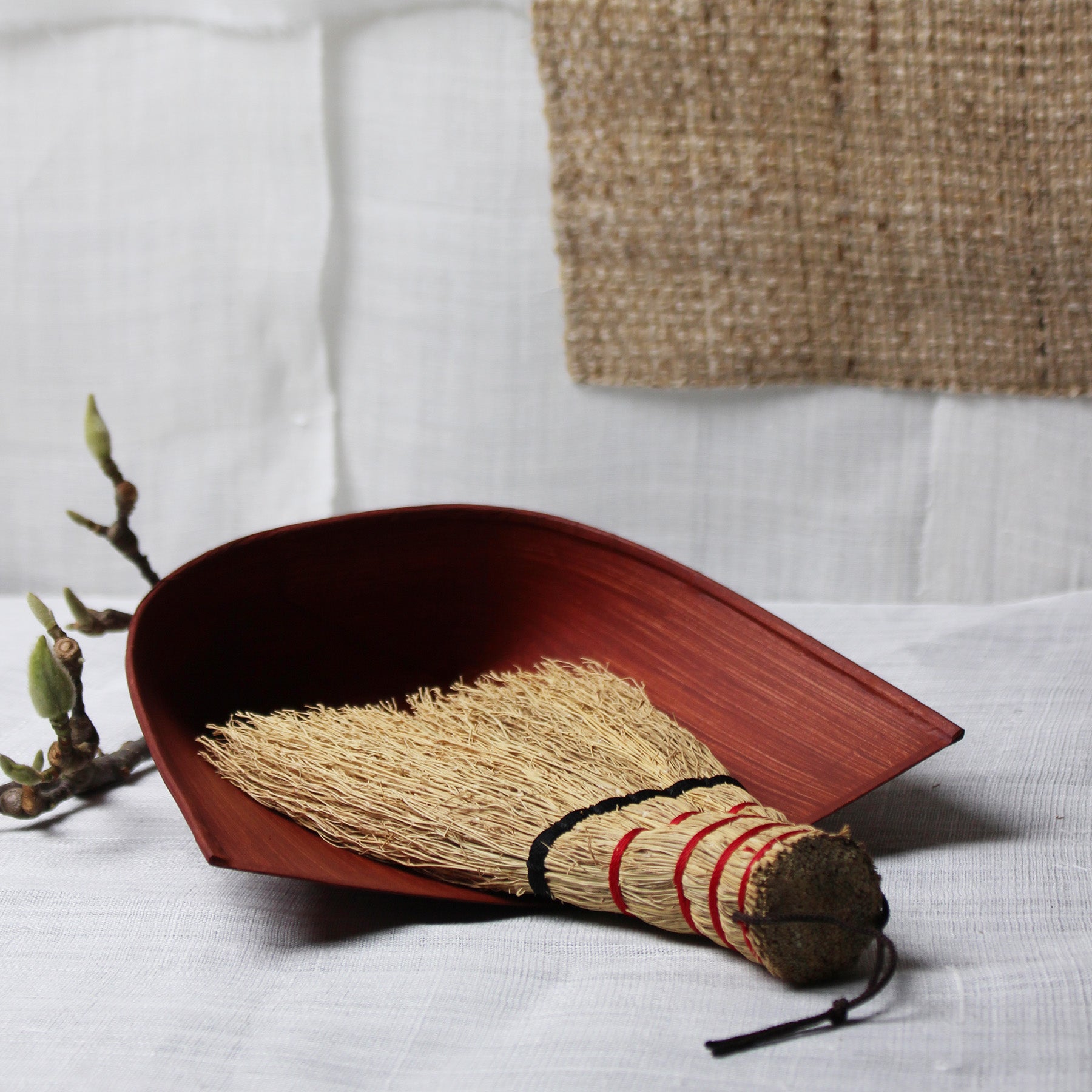
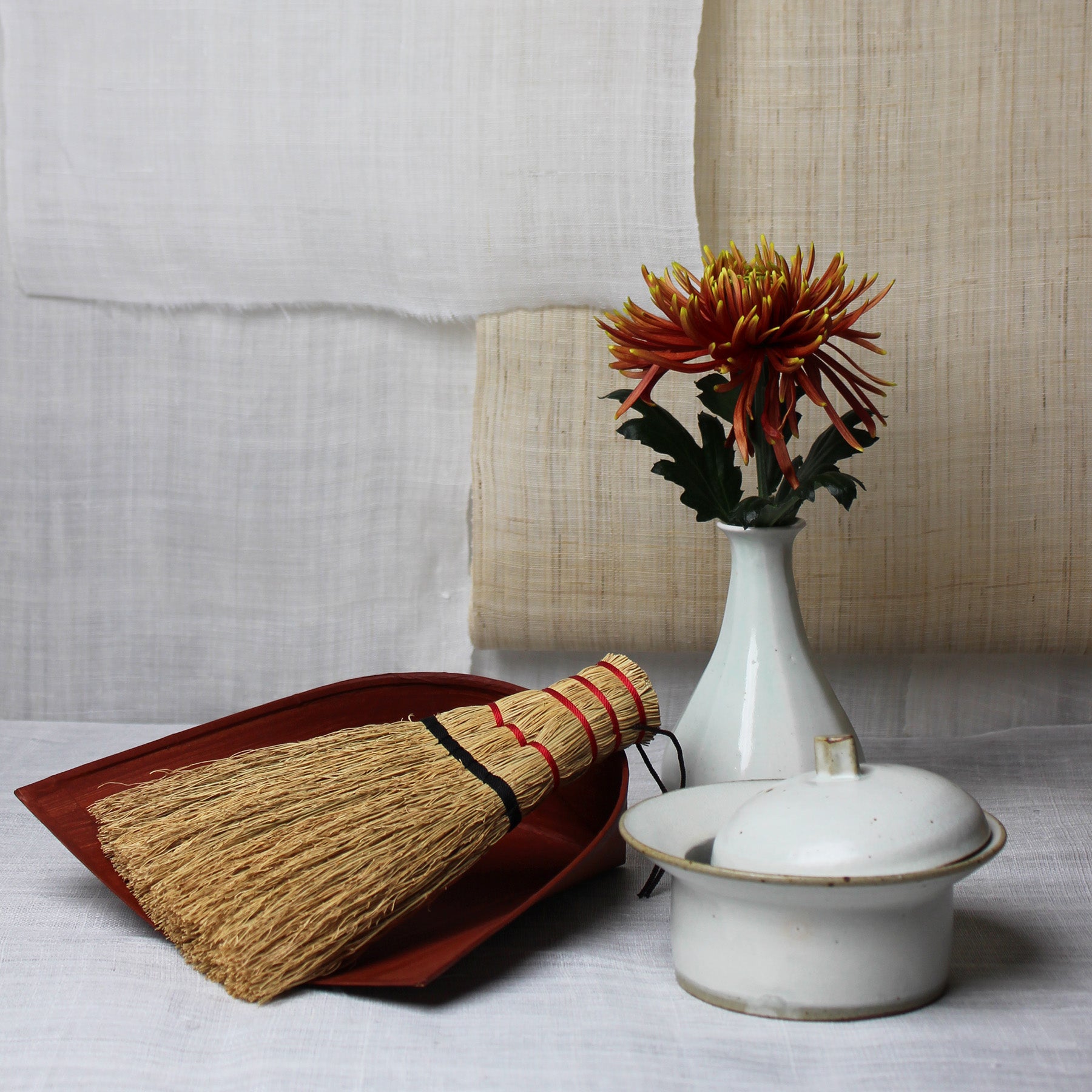
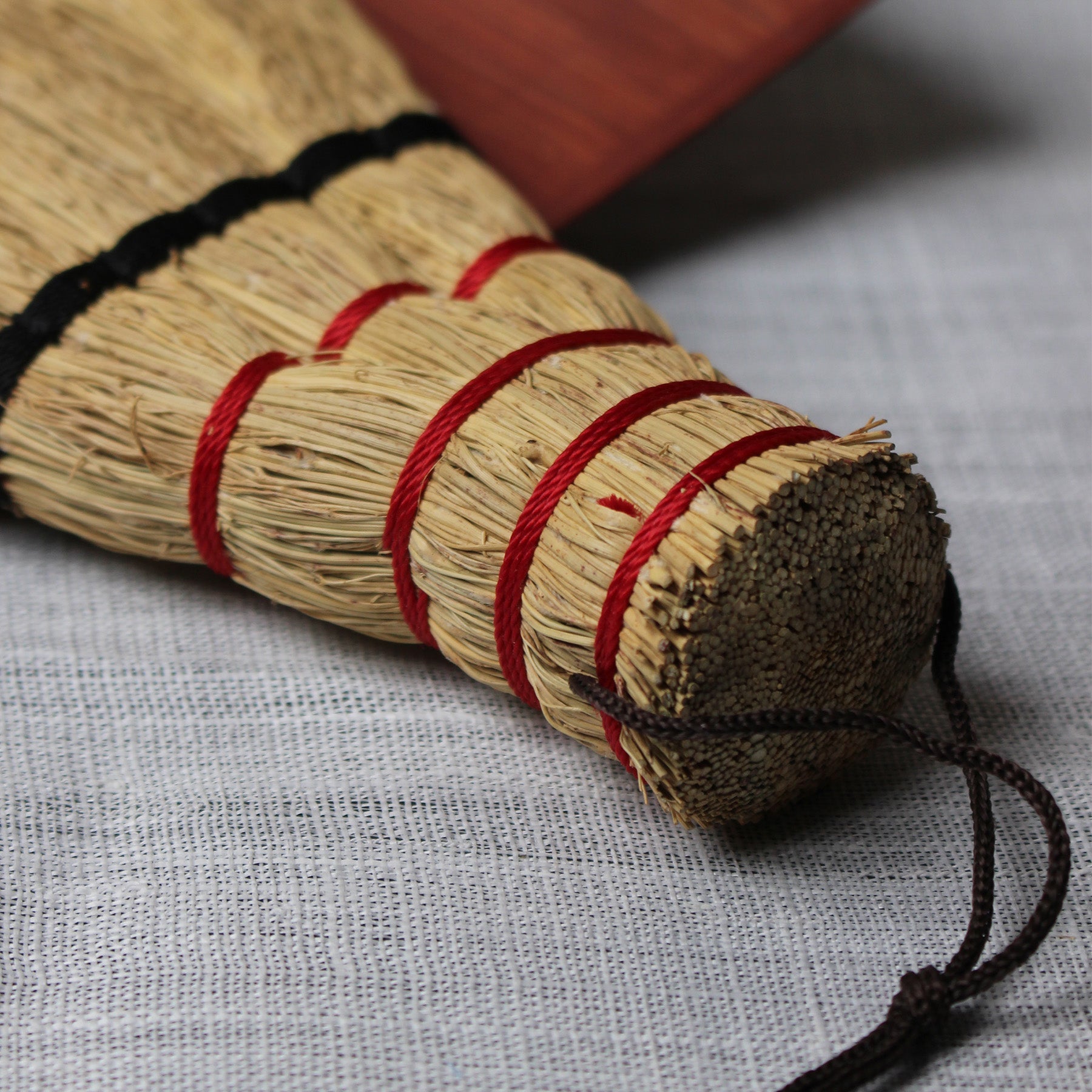
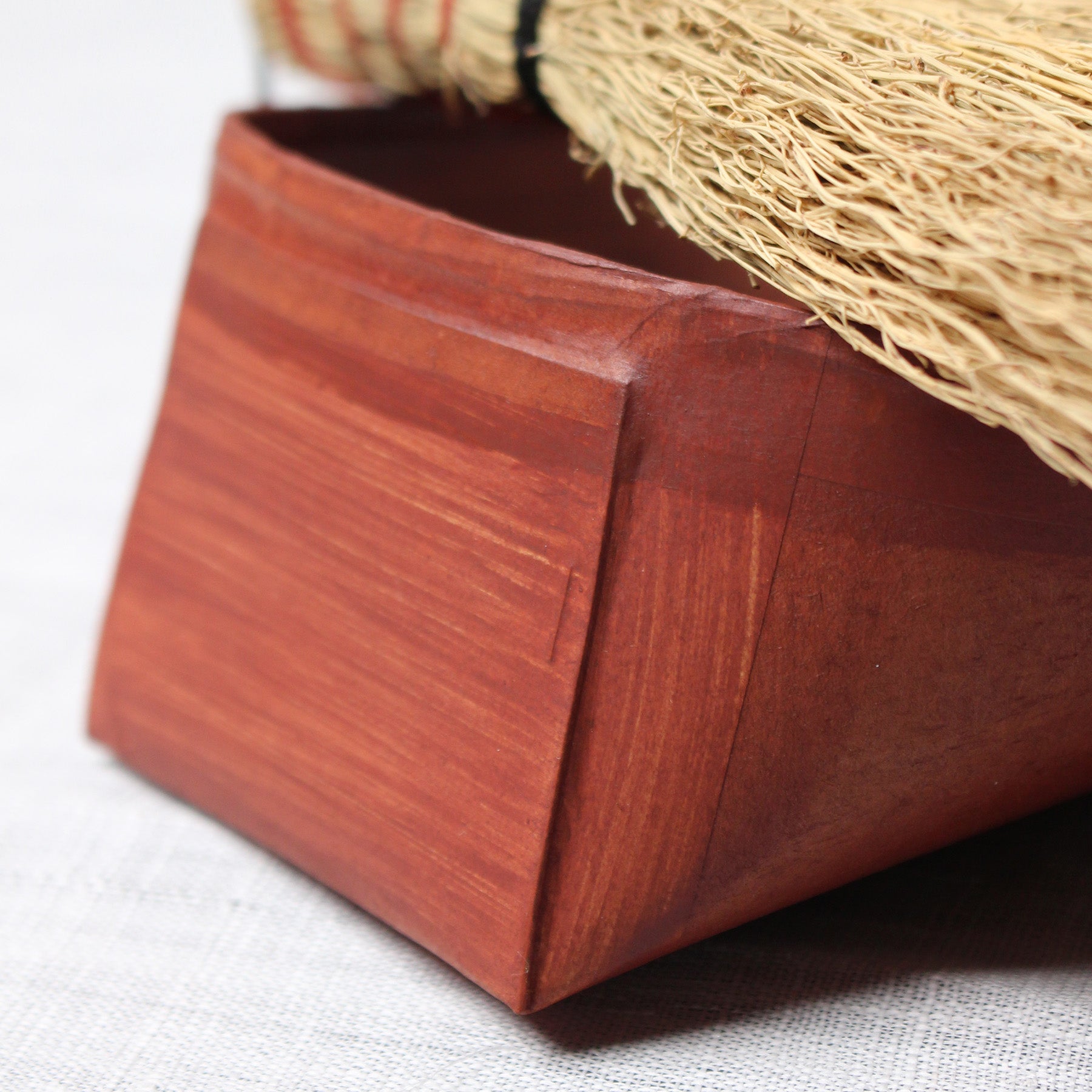
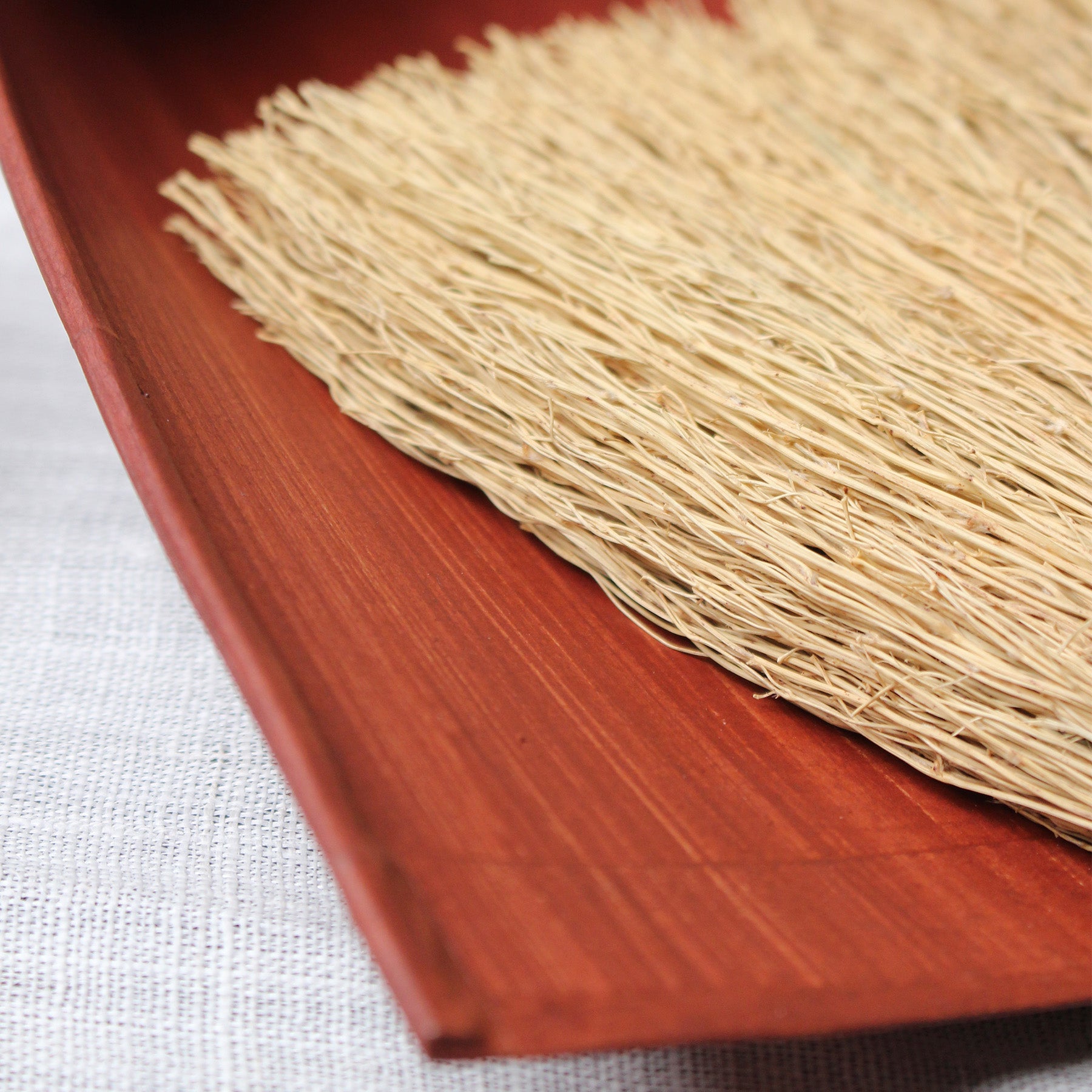
Japanese sweeping set: sorghum broom and khaki-dyed washi paper dustpan
If the beauty of everyday objects encourages the pleasure of a job well done, then this Japanese cleaning set is exactly what we need. Very traditional in its design but still contemporary in its use, it has survived the centuries and continues to be made by hand. It is made by the craftsmen of Shirokiya Shoten, founded in Tokyo in 1830.
This is a "table" cleaning set, to be used for removing crumbs, dust and other detritus from small surfaces, practical to use and to have on hand at all times, as well as being beautiful and a decorative object in its own right.
The broom is made from sorghum fibre, the stalks of which have been levelled and joined together, then securely tied with contrasting cords. It's said that it's the perfect arrangement of the stems that makes this broom so effective at capturing small pieces of detritus.
The shovel is made from layers of traditional Japanese washi paper to which persimmon (the fruit) juice has been applied. It's incredibly light, yet strong and durable.
The set is presented in a white Atelier Ikiwa lightweight cardboard box wrapped in a square textile knotted in the art of Korean pojagi, a lovely gift idea.
| PLACE OF MANUFACTURE | JAPAN |
| DIMENSIONS | L21cm x W14cm x H3cm; dustpan: L20cm x W20,5cm x H6,5cm |
| WEIGHT | 100gr |
| COMPOSITION | Sorghum and paper |
This object keeps in memory the hand of the craftsman who designed it with patience. It will accompany your daily life, bringing its delicate and refined beauty, while contributing to the preservation of unique craftsmanship.
ADVICE FOR USE Clean with a soft cloth. The broom must be hung upside down to prevent the stems from twisting.
The shipping costs will be calculated and added when finalizing the basket.
DELIVERY
Delivery
Free delivery in metropolitan France for purchases over €150. Orders are generally sent within 2 working days, except in special cases announced in the banner at the top of the site.
Precious objects are wrapped in a cloth tied in the precious art of Korean pojagi. Some exceptions apply, especially if the objects are bulky. Learn more >
Detailed information on deliveries is available via this link >
Your invoice will be sent by email
Payment methods
By card (Stripe operator): Visa, MasterCard, Discover, American Express.
Secure card payment with 3D Secure.
By PayPal, Apple Pay, Google Pay and Shop Pay
Returns and exchanges
14 days to change your mind.
Choose options
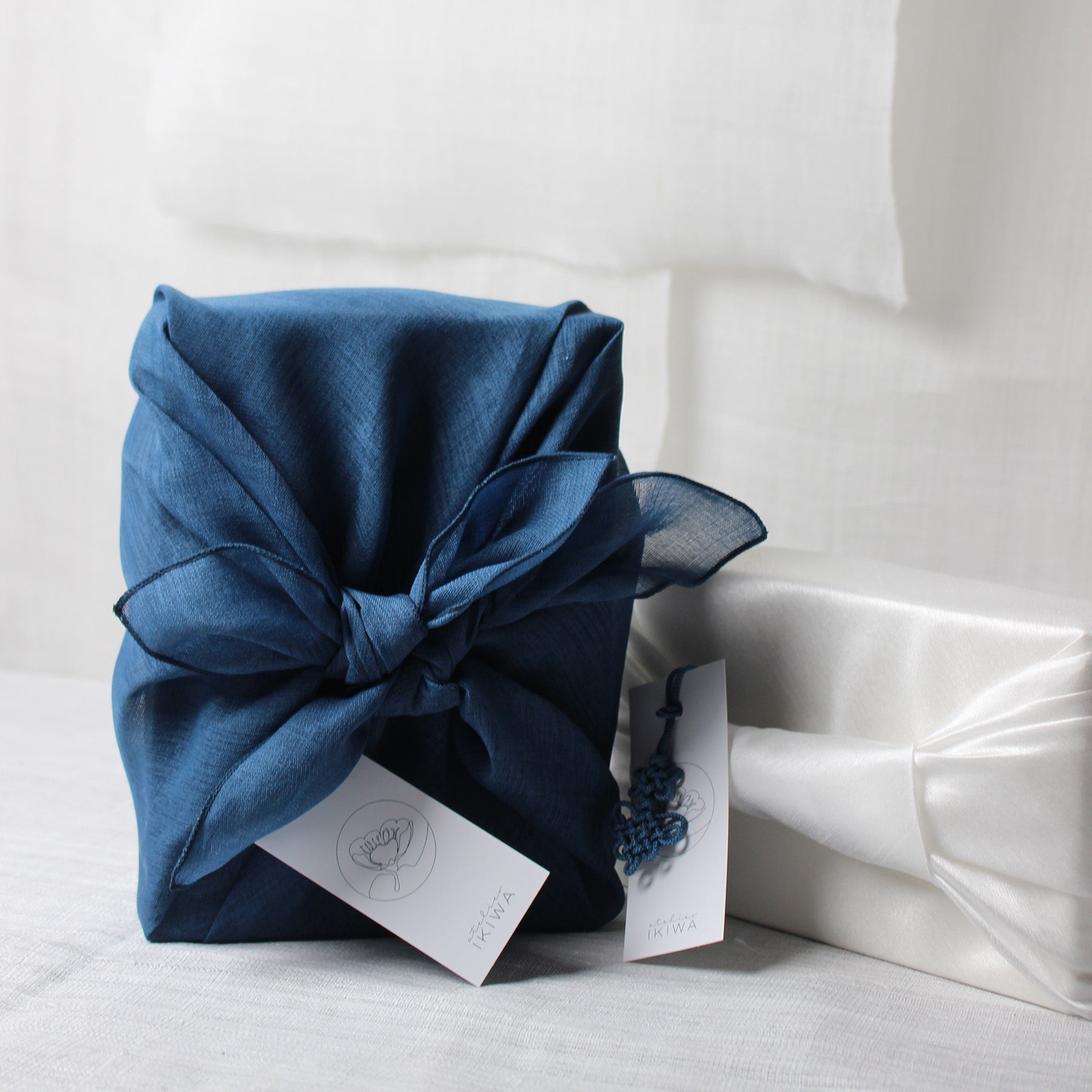
The art of wrapping
The precious objects are wrapped in a beautiful cloth beautifully tied according to the little-known art of Korean pojagi. Details and conditions >


